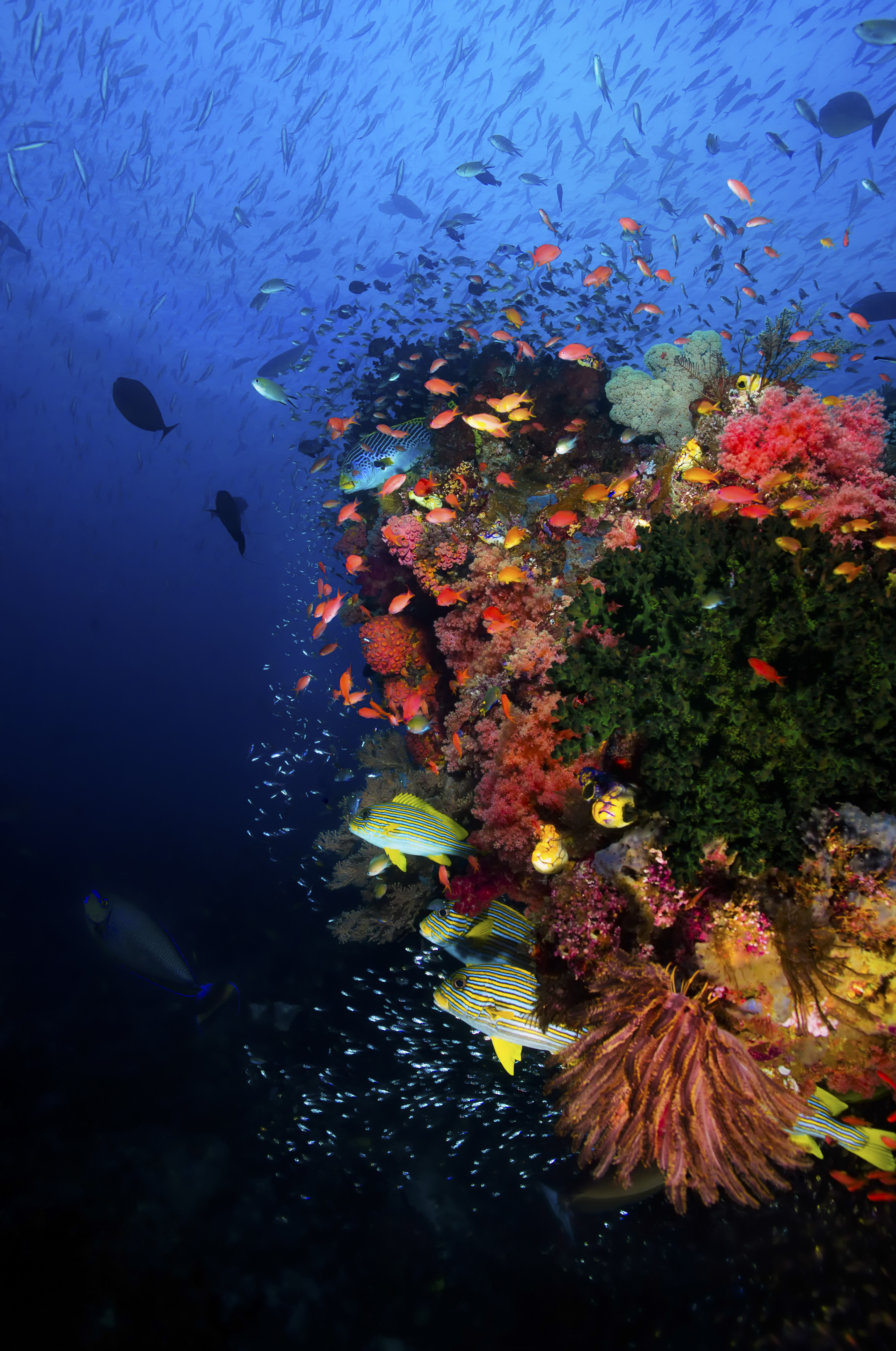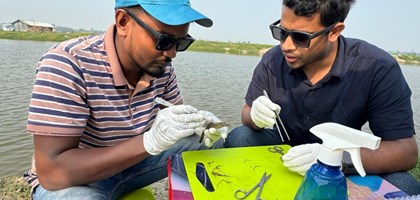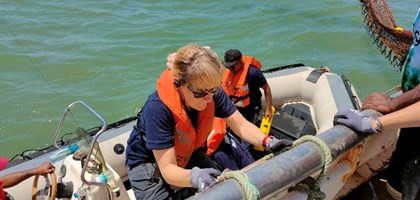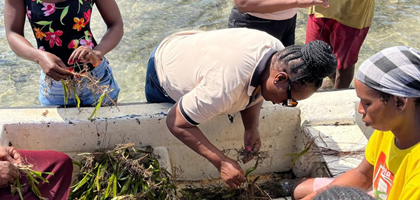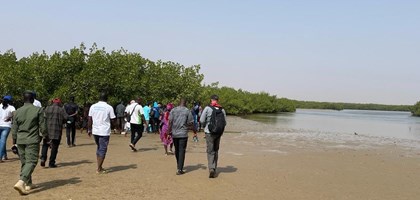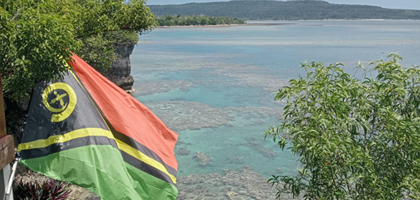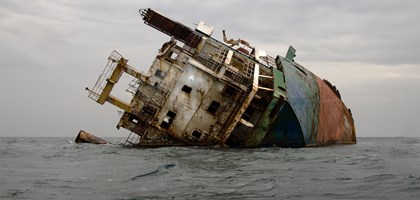Ocean Country Partnership Programme
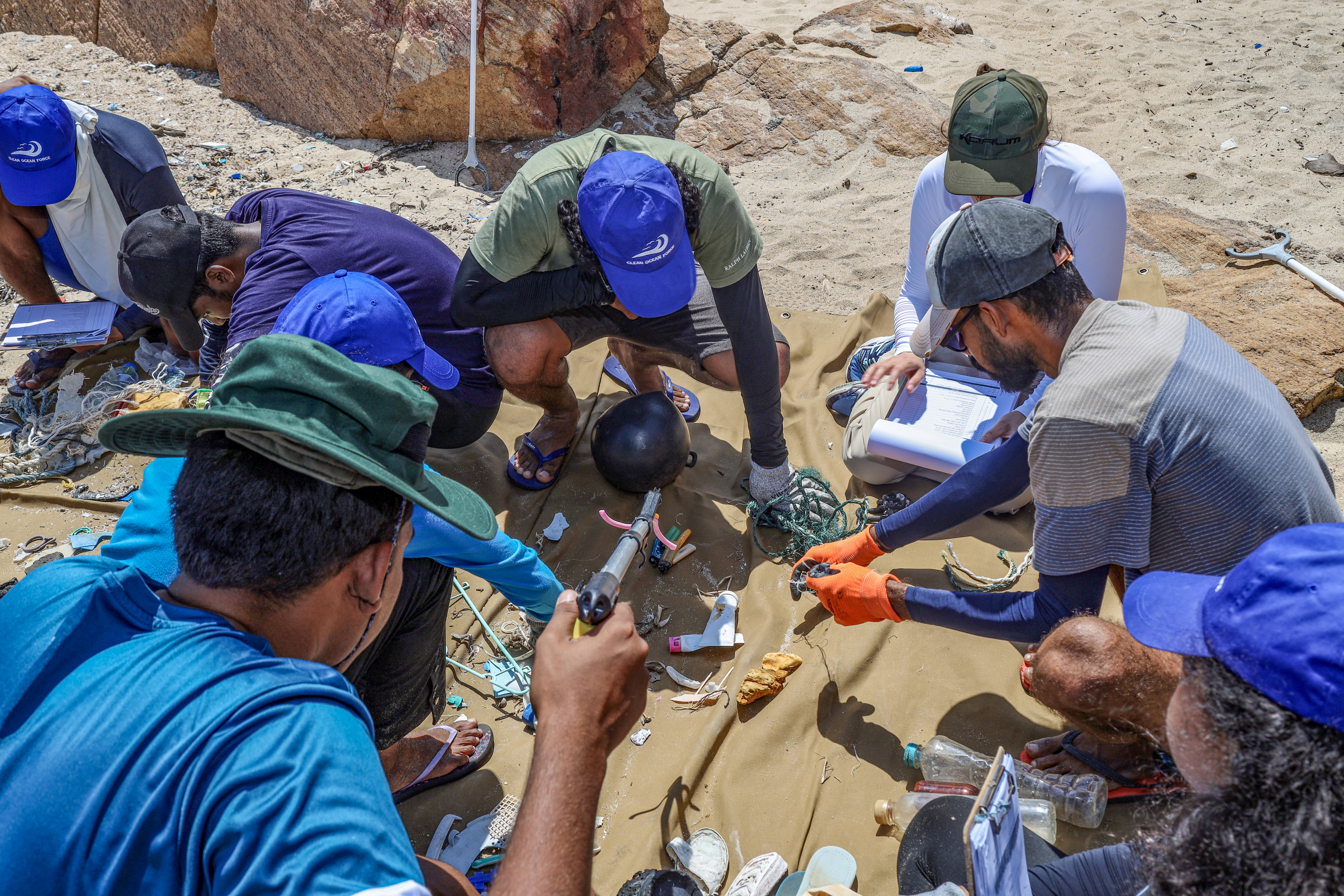
Marine Pollution Prevention and Coastal Ecosystem Conservation Workshop - Sri Lanka 2024
The Ocean Country Partnership Programme (OCPP) is a marine science and management technical assistance and capacity building programme. It provides tailored support to countries to manage the marine environment sustainably and inclusively to alleviate poverty and adapt to climate change. The OCPP delivers across three thematic areas: biodiversity protection, tackling marine pollution, and food security from sustainable seafood.
Funding is provided by the Blue Planet Fund (BPF) through the UK Department for the Environment, Food and Rural Affairs (Defra), and delivered by the Centre for Environment, Fisheries and Aquaculture (Cefas), the Joint Nature Conservation Committee (JNCC) and the Marine Management Organisation (MMO).
Programme Themes
The programme works across three themes, recognising the interdependencies:
Marine Pollution: by supporting countries with the skills and expertise needed to tackle, reduce and mitigate different marine pollutants through the development of science-led policy. With a better understanding of the impacts of pollution, as well as identifying and supporting effective science-informed responses, communities are better equipped to prevent and manage marine pollution, leading to improve health, protected livelihoods and social cohesion.
Sustainable Seafood: through the development of the science expertise and the management skills needed to adopt sustainable seafood practices, countries become more food secure. By tracking risks and implementing approaches to reducing the spread of diseases transmitted to humans from animals from unsustainable or unsafe activities and promoting the sustainable management of fisheries, through a reduction in illegal, unreported and unregulated fishing through better management, monitoring and enforcement, local and national consumption and trade in safe and healthy seafood is better secured.
Marine Biodiversity: by helping countries develop the skills and expertise to implement the most suitable management approaches, such as marine protected areas, and / or marine spatial planning they can reduce the threats to their marine biodiversity, with underpins healthy ecosystems that local communities rely on for food, coastal protection and livelihoods. Protecting marine biodiversity is critical as countries mitigate and adapt to climate change.
CLICK ON A COUNTRY TO FIND OUT MORE
Click below to see more information on our collaborations and network
